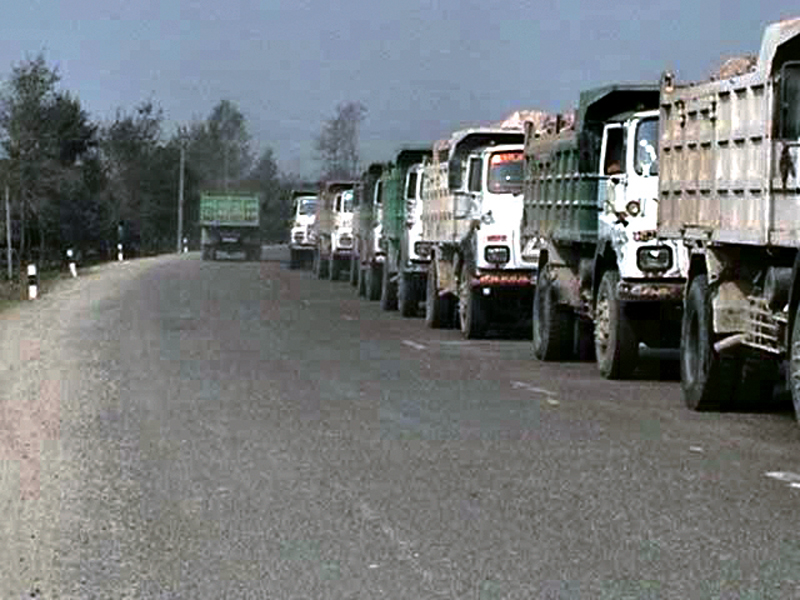Nepal faces hassles in clinker import
Kathmandu, December 25
The country has been facing hassles in importing clinker from India since last week after the locals from Raxaul — bordering town of Nepal — started creating obstructions to unload the dusty cargoes like clinker and fly ash at the yard of the Raxaul station citing health hazards and the court issued a verdict in favour of the locals.
Due to congestion in the Inland Clearance Depot (ICD) Birgunj, the country had been unloading the clinker, coal and fly ash at the siding of Raxaul station and ferrying it through trucks. Now, locals have been demanding that the dusty cargoes be ferried directly to ICD Birgunj. Locals, however, have ceded to allow unloading of coal for short term, according to Ravi Shanker Sainju, joint secretary at the Ministry of Commerce.
“Currently, we are not in a position to bring clinker and fly ash directly to Birgunj dry port because there is no separate space to unload dirty cargoes. Besides, the dry port is already congested.”
Nepal has sought an alternative from the Indian government and the latter had said earlier that they would consider Ramgarhwa for the unloading facility. However, nothing has been finalised yet, as per Sainju. “India has also proposed to expand railway track to Nepal, but that would take at least six months.”
Cement manufacturers have been urging the government to sort out the issue as soon as possible as the country could face an acute shortage of cement in the near future. This is because import of cement from India has already dropped after the country enforced ‘Nepal Standard’ requirement for Indian cement since beginning of this fiscal.
Sainju and the director general of Department of Railway, Nepal are scheduled to meet the officials of Bihar government and central government in Raxaul on Tuesday to discuss possible solutions. He said expanding railway track and unloading dusty cargoes in ICD Birgunj cannot be immediate solutions. Also, the dry port is crucial for Nepal’s third-country trade.
“This issue could be resolved if India expedited letters of exchange (LoEs) of bulk cargo movement, under which Nepal has proposed to bring bulk cargo to the nearest rail head of India from Nepal border — Nautanwa (Bhairahawa), Rupaidiha (Nepalgunj) and Jogbani (Biratnagar). India, so far, has allowed ferrying containerised cargo to Jogbani, but not for open wagons.”
As per Dhruba Raj Thapa, president of Nepal Cement Manufacturers Association, of the total 50 cement plants operating in the country, 37 do not have their own clinker plants and are relying on clinker imported from India. In the last fiscal, Nepal imported two million tonnes of clinker from India. Of the total clinker imports, a large chunk (almost 900,000 tonnes) was imported via Raxaul, according to Thapa.
Though cement manufacturers claim that the country could be self-reliant on cement production, majority of the local plants have been importing the raw materials (clinker, fly ash and gypsum) from India and only crushing the clinker in their plants.






